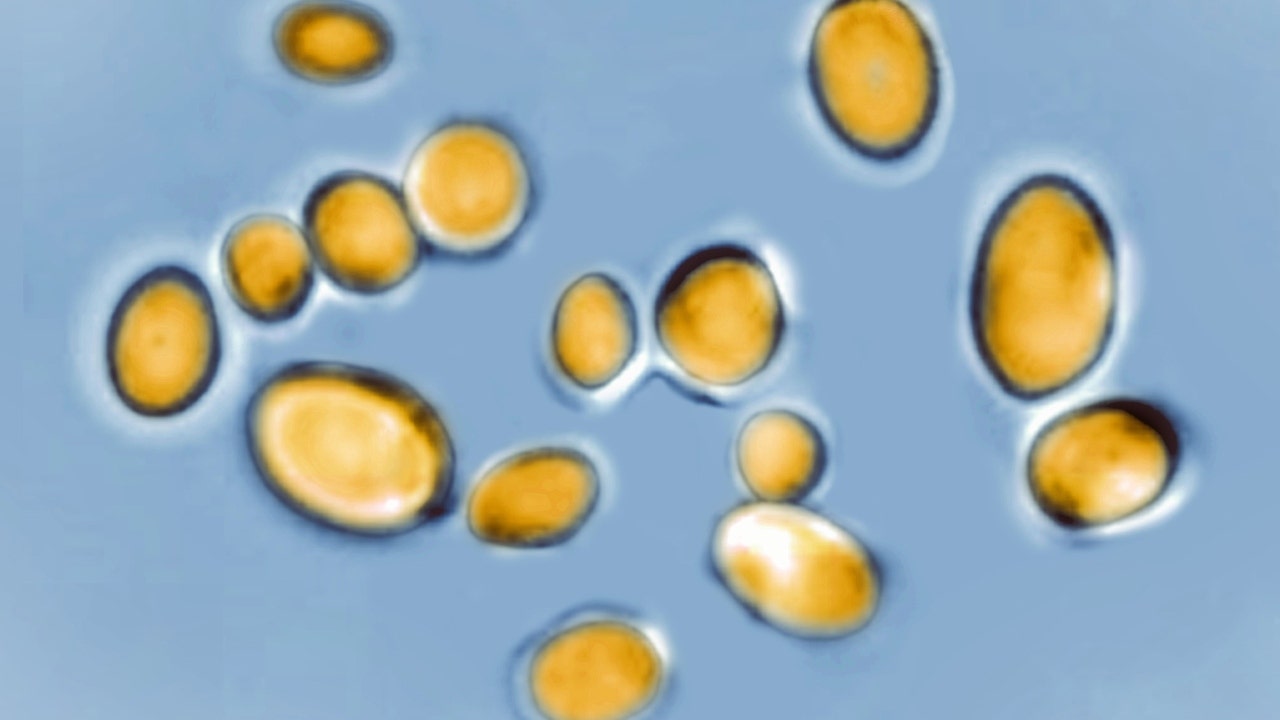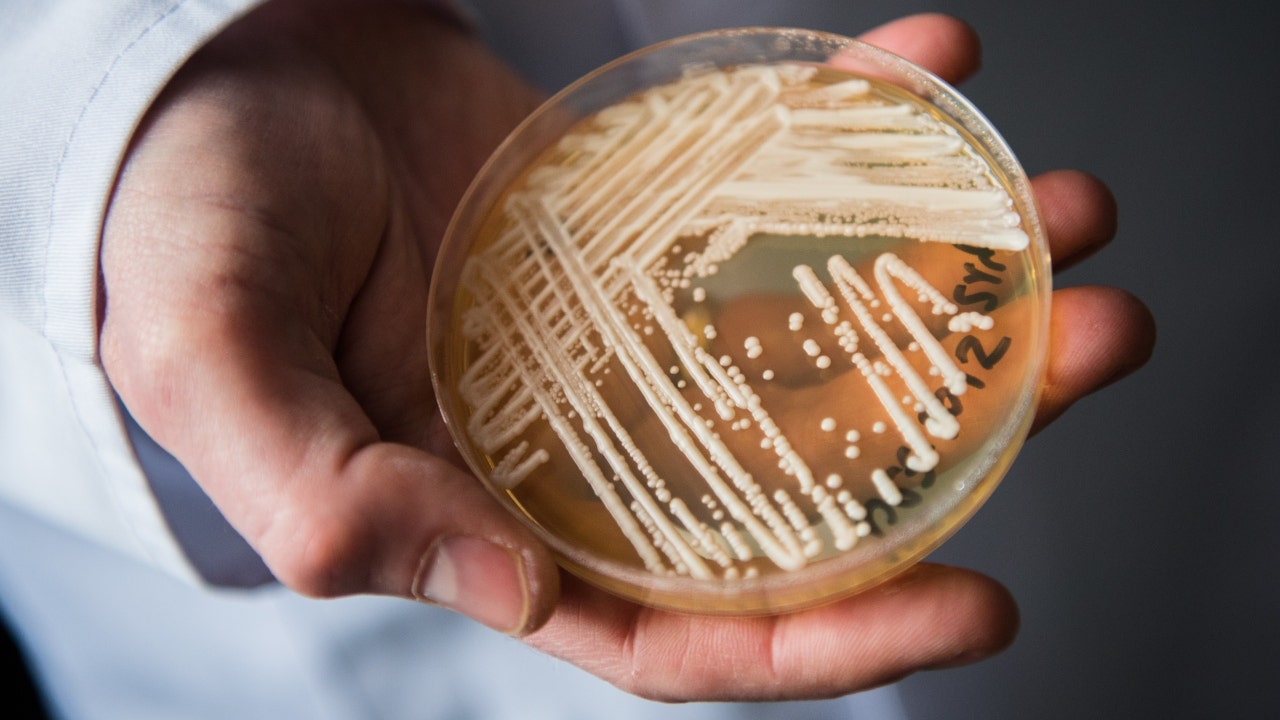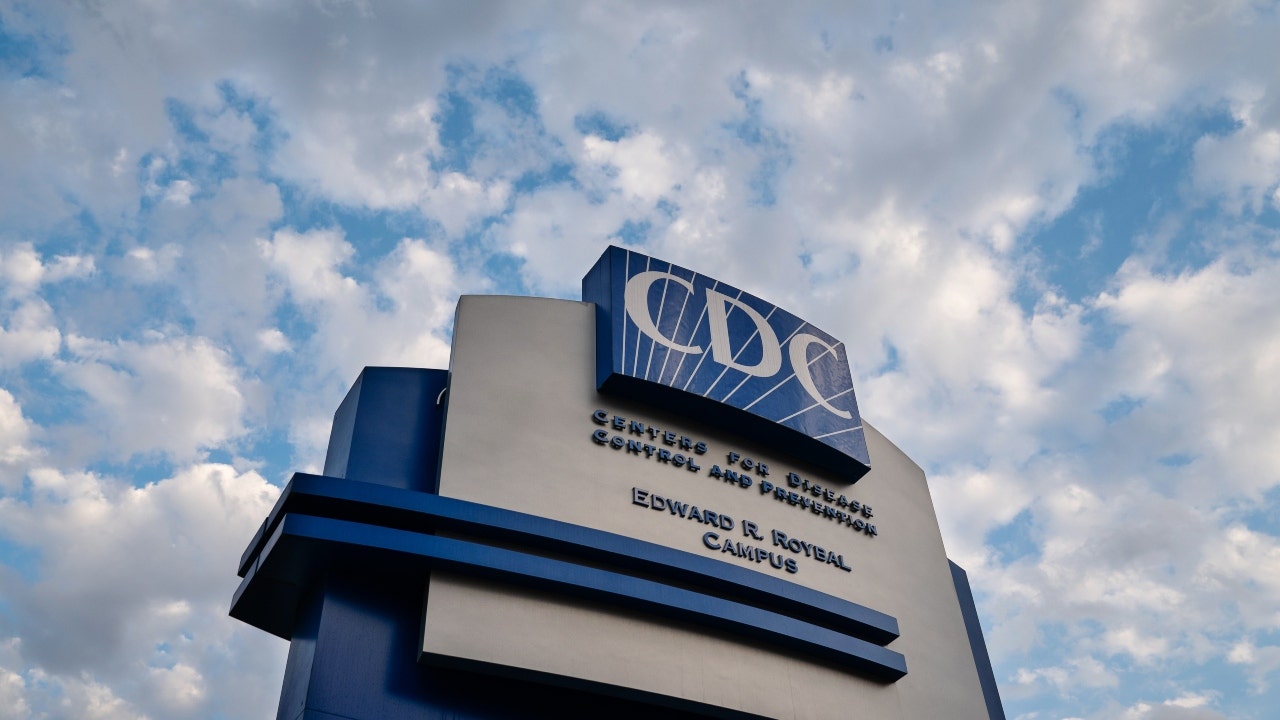Health
Washington health officials investigate first case of drug-resistant fungus in Pierce County man

Washington health officials said they were investigating the first case of Candida auris, or C. auris, diagnosed in the state.
A Pierce County man was diagnosed with colonization due to the multidrug-resistant fungus on July 13.
The man tested positive at Kindred Hospital Seattle–First Hill during an admission screening.
Before that, he had been a patient at St. Joseph Medical Center in Tacoma for approximately six weeks.
FLORIDA COUNTY REPORTS 7TH CASE OF LOCALLY ACQUIRED MALARIA AMID ILLNESS ADVISORY
Candida auris is a yeast responsible for many infections. Resistant to most antifungal drugs, this fungus causes deaths worldwide. (BSIP/Education Images/Universal Images Group via Getty Images)
He suffers from multiple comorbidities and has not recently traveled out of state.
The Tacoma-Pierce County Health Department said this is believed to be the first locally acquired case in Washington.
The Washington State Department of Health issued a health alert about this case on Tuesday.
“Screening for contagious diseases helps healthcare and public health find infections early to help limit spread. It is a critical step to protect the public,” Nigel Turner, Division Director for Communicable Disease Control, said in a statement. “We prepare for this and other diseases to make sure we and our healthcare partners can respond quickly and effectively.”

The director of the National Reference Centre for Invasive Fungus Infections, Oliver Kurzai, holding in his hands a petri dish containing the yeast candida auris in a laboratory of Wuerzburg University in Wuerzburg, Germany, on January 23, 2018. (Photo by Nicolas Armer/picture alliance via Getty Images)
FRIGHTENING NEW FUNGUS ‘CANDIDA AURIS’: WHAT IS IT? WHO IS SUSCEPTIBLE?
The Tacoma-Pierce County Health Department is working with the State Department of Health, Public Health Seattle-King County, Virginia Mason Franciscan Health and Kindred Hospitals to investigate.
“We will provide testing for other patients who may have been exposed. This patient will remain isolated while he continues to receive care,” it said in a release Tuesday.
C. auris is a type of yeast that can cause severe illness, especially in those suffering from serious medical conditions who have spent time in hospitals.

The Centers for Disease Control and Prevention (CDC) headquarters in Atlanta, Georgia. (Elijah Nouvelage/Bloomberg via Getty Images)
Patients who are colonized can carry and spread C. auris even if it is not making them sick.
From 2013 through last year, the Centers for Disease Control and Prevention reported 5,654 infections of C. auris across the country, including in western states.
The agency says that the risk of C. auris infection to otherwise healthy people, including healthcare personnel, is extremely low.
The fungus can cause serious infections in the blood and wounds. More than one in three patients with C. auris infection dies.

Health
Semaglutide Pills and Injections Vs. Drops: Experts Weigh In | Woman's World

Sign Up
Create a free account to access exclusive content, play games, solve puzzles, test your pop-culture knowledge and receive special offers.
Already have an account? Login
Use left and right arrow keys to navigate between menu items.
Use escape to exit the menu.
Health
Jennifer Hudson Lost 80-Lbs Without Depriving Herself—Learn Her Secrets

Sign Up
Create a free account to access exclusive content, play games, solve puzzles, test your pop-culture knowledge and receive special offers.
Already have an account? Login
Use left and right arrow keys to navigate between menu items.
Use escape to exit the menu.
Health
Kennedy’s Plan for the Drug Crisis: A Network of ‘Healing Farms’

Though Mr. Kennedy’s embrace of recovery farms may be novel, the concept stretches back almost a century. In 1935, the government opened the United States Narcotic Farm in Lexington, Ky., to research and treat addiction. Over the years, residents included Chet Baker and William S. Burroughs (who portrayed the institution in his novel, “Junkie: Confessions of an Unredeemed Drug Addict”). The program had high relapse rates and was tainted by drug experiments on human subjects. By 1975, as local treatment centers began to proliferate around the country, the program closed.
In America, therapeutic communities for addiction treatment became popular in the 1960s and ’70s. Some, like Synanon, became notorious for cultlike, abusive environments. There are now perhaps 3,000 worldwide, researchers estimate, including one that Mr. Kennedy has also praised — San Patrignano, an Italian program whose centerpiece is a highly regarded bakery, staffed by residents.
“If we do go down the road of large government-funded therapeutic communities, I’d want to see some oversight to ensure they live up to modern standards,” said Dr. Sabet, who is now president of the Foundation for Drug Policy Solutions. “We should get rid of the false dichotomy, too, between these approaches and medications, since we know they can work together for some people.”
Should Mr. Kennedy be confirmed, his authority to establish healing farms would be uncertain. Building federal treatment farms in “depressed rural areas,” as he said in his documentary, presumably on public land, would hit political and legal roadblocks. Fully legalizing and taxing cannabis to pay for the farms would require congressional action.
In the concluding moments of the documentary, Mr. Kennedy invoked Carl Jung, the Swiss psychiatrist whose views on spirituality influenced Alcoholics Anonymous. Dr. Jung, he said, felt that “people who believed in God got better faster and that their recovery was more durable and enduring than people who didn’t.”
-
/cdn.vox-cdn.com/uploads/chorus_asset/file/25822586/STK169_ZUCKERBERG_MAGA_STKS491_CVIRGINIA_A.jpg)
/cdn.vox-cdn.com/uploads/chorus_asset/file/25822586/STK169_ZUCKERBERG_MAGA_STKS491_CVIRGINIA_A.jpg) Technology1 week ago
Technology1 week agoMeta is highlighting a splintering global approach to online speech
-

 Science1 week ago
Science1 week agoMetro will offer free rides in L.A. through Sunday due to fires
-
/cdn.vox-cdn.com/uploads/chorus_asset/file/23935558/acastro_STK103__01.jpg)
/cdn.vox-cdn.com/uploads/chorus_asset/file/23935558/acastro_STK103__01.jpg) Technology7 days ago
Technology7 days agoAmazon Prime will shut down its clothing try-on program
-

 News1 week ago
News1 week agoMapping the Damage From the Palisades Fire
-
/cdn.vox-cdn.com/uploads/chorus_asset/file/25826211/lorealcellbioprint.jpg)
/cdn.vox-cdn.com/uploads/chorus_asset/file/25826211/lorealcellbioprint.jpg) Technology7 days ago
Technology7 days agoL’Oréal’s new skincare gadget told me I should try retinol
-
/cdn.vox-cdn.com/uploads/chorus_asset/file/25832751/2192581677.jpg)
/cdn.vox-cdn.com/uploads/chorus_asset/file/25832751/2192581677.jpg) Technology3 days ago
Technology3 days agoSuper Bowl LIX will stream for free on Tubi
-

 Business5 days ago
Business5 days agoWhy TikTok Users Are Downloading ‘Red Note,’ the Chinese App
-
/cdn.vox-cdn.com/uploads/chorus_asset/file/25835602/Switch_DonkeyKongCountryReturnsHD_scrn_19.png)
/cdn.vox-cdn.com/uploads/chorus_asset/file/25835602/Switch_DonkeyKongCountryReturnsHD_scrn_19.png) Technology1 day ago
Technology1 day agoNintendo omits original Donkey Kong Country Returns team from the remaster’s credits



/cdn.vox-cdn.com/uploads/chorus_asset/file/25829977/STK051_TIKTOKBAN_B_CVirginia_C.jpg)










